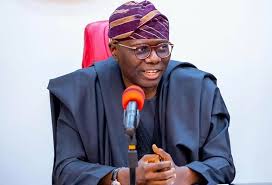As 2023 winds down tomorrow and 2024 begins the following day, some Nigerians have spoken about their expectations in the new year as TOPE SUNDAY writes.
For Nigerians, the New Year is a sign of God’s favour having been counted worthy of witnessing another year. In a period like this, it is a time to set the agenda for the government and to equally speak about their hopes in the New Year.
Nigerians expect better things in the New Year from their leaders. As Africa’s most populous nation and largest economy, Nigerians are hopeful for a prosperous and stable future.
2023 in retrospect
The year, 2023, as it winds is full of the good, the bad and the ugly. On the good side, Nigeria as a sovereign nation witnessed a transition from one civilian to another. Despite the criticism against the 2023 general elections, a new president, Asiwaju Bola Ahmed Tinubu, emerged.
Despite this good news some neighbouring African countries were not as lucky as Nigeria even as incidences like Naira scarcity and subsidy removal within the year under review brought untold hardships on Nigerians.
In the first three months of the year, the Naira re-design policy of the Central Bank of Nigeria (CBN) led to a chronic shortage of cash that disrupted economic activities and the livelihoods of many people.
Data from the CBN show that the currency in circulation declined by 29.2 per cent to N982.1 billion in February, the lowest since October 2008, from N1.39 trillion in the previous month.
Also, the removal of the petrol subsidies tripled the pump price, forcing public transportation providers such as buses, tricycles, and motorcycles to raise fares.
Data from the NBS show that the average retail price paid by consumers for petrol jumped to N648.9 per litre in November from N238.1 in May. The average retail price of diesel also rose from N844.28 per litre to N1, 055.6.
The increase in the cost of petrol led to the average fare paid by commuters for bus journeys within the city per drop to rise by 61.3 percent to N1, 047.63 in November from N649.6 in May.
2024 in view
As 2024 sets in, Nigerians aspire for sustained economic growth and development. They hope that by 2024, Nigeria will witness a more diversified economy, reducing its heavy dependence on oil exports. They also anticipate increased investments in sectors such as agriculture, manufacturing, technology, and renewable energy, which could create employment opportunities and enhance prosperity across various industries.
Better infrastructure
Speaking with Blueprint Weekend, an Abuja resident, Joshua Hassan, said better infrastructure remains a priority for him in 2024, adding that he also yearns for a functional transportation system.
He said: “2023 is winding down, and despite its hardship, we have survived it. However, in 2024, better infrastructure and functional transportation remain my priorities. In addition, I expect access to improved power supply, clean water, and upgraded telecommunications infrastructure.
“Also, an enhanced infrastructure would facilitate trade, improve living standards, and attract more domestic and foreign investments. I also aspire for a more transparent and accountable government. I hope that by 2024, the country will make significant strides in combating corruption, ensuring good governance, and strengthening democratic institutions.
“I also expect a fair and efficient justice system that upholds the rule of law, and hope to see the elimination of nepotism and favoritism in public offices.”
More jobs
An associate professor of Mass Communication, Rasaq Adisa, told this reporter that Nigerians in 2024 would anticipate comprehensive economic reforms to address challenges in food prices, saying that more job creation and inflation control should be the top priorities of the Federal Government.
Adisa, who is of the Department of Mass Communication, University of Ilorin, said: “Nigerians in 2024 anticipate comprehensive economic reforms to address challenges in food prices. The daily increasing prices of goods make it look as if nobody is in charge of our economy. By 2024, we expect more job creation and inflation control.
“The driver of Nigeria’s economy is petrol. Nigerians seek strategies to mitigate the high cost of petroleum, hoping for transparent pricing mechanisms. Recent incidents, like the security issues in Plateau state where close to 100 lives were cut short a day to Christmas, underscore the urgent need for enhanced measures to ensure the safety of lives and property.
“Specifically, we call for strengthened security and conflict resolution initiatives. Finally, we want 2024 to be a turning point for a better Nigeria because we can wait for more promises of hope upon hope.”
Alleviating hardships
On his part, a lecturer at the Department of Political Science, Federal University, Oye-Ekiti, Mr. Femi Fayomi, called for the reduction of pains being experienced by Nigerians as a result of subsidy removal in 2024 and made the case for the strengthening of the nation’s security architecture.
“With the likely takeoff of Dangote Refinery in 2024, one is expecting that there will be massive employment of young Nigerians and some form of relief on petroleum products pricing. The wish is that there will be a reduction in the level of pain many Nigerians are battling as a result of subsidy removal.
“With the take-off of student loans in January, it is expected that several students in Nigeria’s tertiary institutions will be comfortable pursuing academic activities with minimal frustration. On the economy, sound economic policies are expected to be introduced to facilitate economic growth and development.
“It is instructive to note that the first fiscal policy, i.e. national budget will be signed into law soon and the Tinubu presidency will be set to implement her first budget. I also expect the government of Tinubu to restore security in the country. The wanton killings in Plateau State and other areas in Nigeria need to be tackled with all seriousness.
“With the removal of fuel subsidy and the introduction of a salary award of #35000 which was only paid in October 2023 is expected to end in February 2024 and hence, it is much anticipated that there will be a new minimum wage in 2024.
“The Tinubu administration needs to kick start 2024 with the implementation of policies and programmes that will address the level of poverty, unemployment, insecurity, and restiveness in some of the countries, otherwise, this government will continue to be in motion without movement,: he said.
Foreign exchange stability
A real estate economist, Mr. Benjamin Onigbinde, on his part, told Blueprint Weekend that he expects the stability of foreign exchange and a secured business environment in 2024.
He said: “With the 2024 budget, the generality of people expects to experience an improved standard of living, more jobs, stability in foreign exchange, and a secured business environment.
“As a real estate economist, I am more concerned about the stimulus in the development of the housing sector, especially the affordable homes, which I believe will provide jobs for artisans and improve skills in housing development.
“I am also expecting a bottom-up approach to this development, integration of housing policies from local to state and federal government. Each local government should be able to add up to 100 housing units in a year to the national housing stock.”




